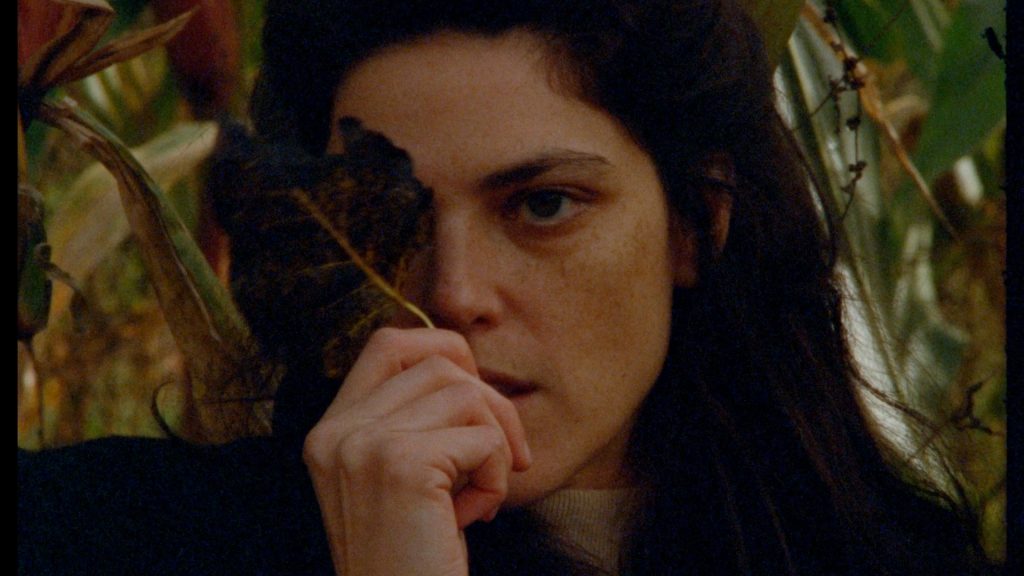Reviews include The Shrouds, On Swift Horses, and The Legend of Ochi.
Dispatch from RIDM 2024: Invitations and Inventions (Part II)
January 13, 2025

By Winnie Wang
While RIDM marks the beginning for many Canadian documentaries on the festival circuit, it showcases a selection of the year’s most acclaimed experimental and hybrid works that programmers encountered at festivals around the world. After stops at Cinema du Réel, Visions du Réel, FIDMarseille, Karlovy Vary, Locarno, and Camden International Film Festival, Canadian audiences—particularly those, like me, who are mourning the loss of the experimental Markers section at Hot Docs—finally have the opportunity to see visionary films that push and contest the boundaries of documentary.
The 2024 international feature competition at RIDM comprised ten films that were as imaginative as they were audacious. The line-up fearlessly leaped and lunged with distinct strategies to reach strange, hidden, and devastating truths. The films’ approaches were oblique and unexpected, embracing diversions and detours that carved the necessary space to explore themes of grief, aging, death, performance, family, and land. Again and again, these themes emerged across the competition with the frequencies of the works acting upon each other to reveal existing resonances and new revelations.
For my first screening, I watched the Spanish-Portuguese co-production To Our Friends in a theatre bursting with young audience members who agreed that Adrián Orr’s latest effort to collapse the boundaries between fiction and nonfiction was the most appealing way to spend a Saturday evening. Orr follows Sara, a young woman from the working-class suburbs of Madrid who seizes each day between the transition from adolescence and adulthood. Her days are filled with swimming and skateboarding and smoking, interrupted by moments where she must confront the future: taking university entrance exams and discussing her life ambitions. When Sara’s new friends introduce her to the theatre, she eagerly adopts the medium to work on a project that resembles her own life. A hybrid work that employs scripted scenarios and improvised dialogue, the film beautifully captures the spontaneity, exuberance, and uncertainty in our most defining coming-of-age stories.
The following evening, in the same room, I surrendered to Courtney Stephens’ Invention (USA), an enigmatic and spellbinding mystery loosely based on co-writer Callie Hernandez’s relationship with her late father. Carrie, played by Hernandez, discovers that her eccentric physician father was less than responsible with his business dealings: her sole inheritance after his sudden death is, regrettably, a patent for an electromagnetic healing device. In an attempt to settle his affairs, Carrie visits his various friends, investors, and manufacturers to decipher her father’s obsession with alternative medicine and, in doing so, uncover his desires and motivations. The film, which primarily unfolds through grainy 16mm footage shot by Stephens in New England, is interspersed with VHS archival material. The latter elements chronicle TV appearances by Hernandez’s father as he promoted various experimental techniques and remedies, lending a sense of nostalgia and conspiracy that at once comforts and unsettles. The title might refer to the experimental contraption, or the creation of a mythology by Stephens and Hernandez in the act of fictionalizing their experiences. With unexpected moments of lightness and mystification, Invention takes up performance to contain and shape one’s grief, drawing from acquaintances, media archives, and found objects in an attempt to connect with a lost one.
In Lapilli, described on the poster as “a soft film about hard matter,” Slovak filmmaker Paula Ďurinová narrates over mesmerizing footage of rocks, boulders, valleys, caves, and mountains to process the sudden loss of her grandparents. The surfaces captured are hypnotic and astonishing with their palettes, textures, and structures, containing yellow prismatic crystals and pale pink layers of sediment that transition to green, accumulated over vast scales of time to witness birth and death. Equally considered and textured, the acoustic landscape consists of meditations on memory and mourning, recitations of other texts, and original compositions that speculate how rocks might sing and reverberate. Haunting and dreamlike, the proposed sounds capture the endurance, wisdom and humility of geological matter. Guided by her fascination with this inorganic material, Ďurinová reveals these formations as excavation sites for not only metals and gemstones but also precious insights into time, disappearance and transformation.
As it turns out, rocks make for unusually versatile and productive documentary subjects. Belgian filmmaker Sofie Benoot’s Apple Cider Vinegar casts the voice of actress Siân Phillips as a retired wildlife documentary narrator whose interest in the natural world is renewed after the removal of her kidney stone. Our unnamed protagonist’s pebble-sized mass was grown layer by layer within the body and shares a chemical composition with weddellite, a mineral found on the floor of the Weddell Sea, near Antarctica. This discovery shifts our raconteur’s appreciation of rocks beyond “a stage supporting the lead characters,” inviting us on a voyage to witness volcanoes in Cape Verde, quarry workers in Palestine, an amateur seismologist in California, and cliffside fishing in Northern England. Named after a home remedy for kidney stones, the film serves as a travelogue that urgently examines the Anthropocene—how we manipulate landscapes on a grand scale to suit our needs, the depletion of resources from one region and its peoples for the benefit of another, the consequences we must face after the profound influence we’ve exerted on the earth. Her investigations yield disheartening results, though she never feels defeated, animating her journey with an inquisitive and playful tone that carries across the film.
It’s no surprise, given the strength of the international films, that RIDM is a well-attended festival for public audiences and industry folks. As a result, the twelve-day showcase is also a prime destination for producers, financiers, distributors, and programmers to preview projects in development, form connections for future collaborations, and gain international market insights. In one panel, representatives from boutique sales and distribution companies shared their observations on festival trends, noting that the high turnover of workers at festivals in recent years has led to festival identities changing faster, and sales agents reminding programmers of existing relationships with filmmakers. They noted, too, that festivals are becoming increasingly homogenous by serving similar line-ups, though this issue seems to evade RIDM, which has only affirmed its mission to expand the possibilities of documentary over the past several years.
That the festival is located in Montreal, a place romanticized for its ability to provide creative sanctuary to artists, feels appropriate. Where other metropoles are marked by high living costs and heavy interest in commerce, Montreal benefits from the protection of lower rents and public policy that support the ability to experiment, to take creative risks without fear of significant financial peril. The result is reflected across the festival’s programming, industry offerings, and pricing structures, welcoming current and future members of the film community to participate in the sculpting of new forms and aesthetics for nonfiction cinema.
Winnie Wang is the 2024 Telefilm Canada Emerging Critic Award winner.



